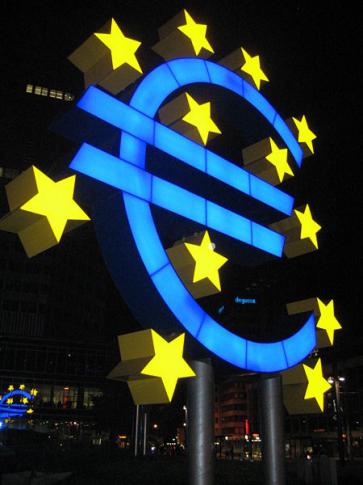Eurozone split over new Greece bailout

Dutch minister condemns French plan as 'illusory' Yield on Portuguese bonds soar after downgrade.
Heather Stewart guardian.co.uk
Eurozone finance ministers are sharply divided over how to handle the spiralling Greek debt crisis, Dutch finance minister Jan Kees de Jager revealed as he attacked France's plans for a new rescue package.
Speaking in London after a meeting with the chancellor, George Osborne, de Jager said it was "illusory" to hope that Europe's banks would voluntarily bear their fair share of the costs of a new bailout for Athens, and that President Sarkozy's current proposals let Greece's private sector creditors off too lightly.
Any evidence of a fresh split among European policymakers will increase anxiety in the financial markets, which were rattled on Wednesday by news that ratings agency Moody's had downgraded Portugal's debt to junk status.
"We do have concerns about the French scheme," de Jager said. "I think it's illusory to think of such a scheme as voluntary, so we have to work on solutions so that banks reach a level playing field."
As a non-eurozone member, Britain is on the sidelines of talks about a new bailout for Greece, but de Jager said Osborne was "very close to our position".
The cost of insuring Portuguese government debt through credit default swaps hit a record high after the downgrade, while the yield on Portuguese 10-year bonds jumped by more than a percentage point to 12.07%, ratcheting up the pressure on Lisbon.
European commission president José Manuel Barroso criticised Moody's announcement, saying: "In this context, and the absence of new facts on the Portuguese economy that could justify a new assessment, yesterday's decisions by one rating agency do not provide for more clarity. They rather add another speculative element to the situation."
Sarkozy sought to quell the rising panic in markets last month by announcing he had persuaded French banks to play their part in a new bailout package for Greece by swapping their outstanding bonds for new long-term loans. Germany's banks later said they would join in, and European bankers were meeting in Paris on Wednesday to hammer out the details of a deal.
But ratings agency Standard & Poor's said on Monday that it would consider the complex debt-swap proposed by the French to be a "selective default" – a decision that would have damaging knock-on effects throughout financial markets.
The European Central Bank has warned that if other ratings agencies echo S&P's judgment, it could be forced to stop accepting Greek bonds as collateral, jeopardising the solvency of parts of the European banking sector.
But de Jager said the French plan lets the banks off too lightly, and unless finance ministers impose bigger losses on them, Europe would be "converting private debt into public debt" by lending Greece more money from European taxpayers to pay back bondholders.
Sony Kapoor, of the Brussels-based thinktank Re-Define, said the current plan would have all the disadvantages of a default without actually reducing Greece's debt. "The appearance of private-sector involvement is far more important to EU leaders than the actual fact of it," he said. "We are in the worst of all worlds. The EU and Greece have paid most of the costs that would result from any restructuring of debt without realising any of the upside in the form of a reduction of risks to EU taxpayers or a restoration of debt sustainability in Greece."
Despite the ongoing crisis, the ECB is expected to go ahead with a planned increase in interest rates tomorrow, increasing the pain for recession-hit Greece and Portugal. Higher eurozone interest rates also feed through to the rate Greece, Ireland and Portugal pay on bailout loans.
De Jager showed little sympathy for the plight of Greece, however. "Contagion risks are not best handled by bailout funds, or by being soft on each other, but by taking strong measures," he said. "The size of the government needs to decrease in these countries."
He denied that would mean abandoning the cherished European social model. "These economies could be European in the traditional sense, but without the rigid labour markets and rigid monopolistic structures that go with it, especially in the southern European countries. They have to be torn down."
He said he was trying to build a coalition among sympathetic eurozone governments, including Germany, to demand greater private-sector involvement in any new rescue package. Greece is expected to need a fresh bailout of up to €120bn, but finance ministers are not expected to reach a final agreement until the autumn.
De Jager backed Britain's argument that the European commission's demand for an increase in its budget was unacceptable. The Dutch parliament has called for the EU budget to be frozen in cash terms – even tougher than David Cameron's argument for a real-terms freeze. "We are in agreement," de Jager said. The Guardian




 del.icio.us
del.icio.us Digg
Digg

Post your comment